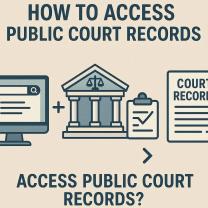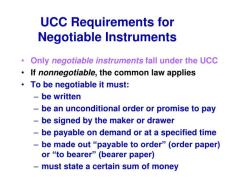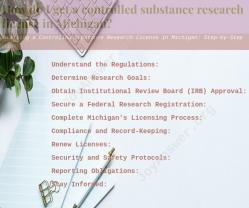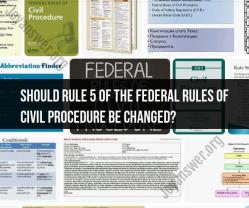How to write a simple will?
How to Write a Simple Will: Step-by-Step Guide
Writing a will ensures your assets are distributed according to your wishes and reduces potential conflicts among loved ones. A simple will doesn’t need to be complicated, and in many cases, you can create one without hiring an attorney. Here’s how to get started:
1. Understand the Purpose of a Will
A will is a legal document that states how your property, money, and possessions should be distributed after your death. It also allows you to:
Appoint an executor to manage your estate.
Name guardians for minor children or dependents.
Specify how debts and taxes should be handled.
2. List Your Assets and Beneficiaries
Before writing, make an inventory of what you own:
Real estate (house, land, property)
Bank accounts, investments, and retirement funds
Vehicles, jewelry, and other valuable items
Digital assets (online accounts, intellectual property)
Next, decide who will inherit these assets. Beneficiaries can include family members, friends, or organizations.
3. Choose an Executor
The executor is the person responsible for carrying out the instructions in your will. This person should be:
Someone you trust completely
Responsible and organized
Willing to take on the role
4. Appoint Guardians (If Needed)
If you have minor children or dependents, specify who will care for them if something happens to you. Without this, a court may decide guardianship.
5. Write the Will Document
A simple will should include:
Your full legal name and address
A declaration that this is your last will and testament
The name of your executor
A clear list of beneficiaries and what they will receive
Guardian appointments (if applicable)
Your signature and the date
6. Sign the Will Properly
Most states require you to:
Sign your will in the presence of two witnesses (who are not beneficiaries).
Have those witnesses sign it as well.
Some jurisdictions may also allow or require notarization for extra legal strength.
7. Store Your Will Safely
Keep your will in a secure place where your executor can easily access it, such as:
A safe deposit box
A home safe
With your lawyer or a trusted person
Make sure your executor knows where it is stored.
8. Review and Update Regularly
Life changes, such as marriage, divorce, births, or major purchases, may require updates to your will. Review it every few years to ensure it still reflects your wishes.
A simple will doesn’t need to be long or complex. The most important thing is clarity—make your wishes unambiguous to avoid confusion later.
Simple Will Template
Last Will and Testament of [Your Full Name]
I, [Your Full Name], residing at [Your Address], being of sound mind and legal age, declare this to be my Last Will and Testament.
1. Revocation of Prior Wills
I hereby revoke all prior wills and codicils made by me.
2. Appointment of Executor
I appoint [Executor’s Full Name], residing at [Executor’s Address], as the Executor of this will. If he/she is unable or unwilling to serve, I appoint [Alternate Executor’s Name] as substitute Executor.
3. Distribution of Assets
I give, devise, and bequeath my property as follows:
To [Beneficiary Name], I give [specific asset or percentage of estate].
To [Beneficiary Name], I give [specific asset or percentage of estate].
The rest and remainder of my estate shall be distributed to [Residuary Beneficiary’s Name].
4. Guardianship of Minor Children (if applicable)
If at my death I am the parent or legal guardian of minor children, I appoint [Guardian’s Full Name] as guardian. If he/she cannot serve, I appoint [Alternate Guardian’s Full Name].
5. Debts and Expenses
I direct that all my just debts, funeral expenses, and estate administration costs be paid as soon as practicable after my death.
6. Signatures
I, [Your Full Name], the testator, sign my name to this Last Will and Testament on this [Day] of [Month, Year], and declare that I understand and willingly execute it.
Signature: ____________________________
(Testator)
7. Witnesses
We, the undersigned witnesses, declare that on this date, [Testator’s Full Name] signed this Last Will and Testament in our presence, and we, at his/her request, sign our names as witnesses.
Witness #1 Name & Address: ____________________________
Signature: ____________________________ Date: __________
Witness #2 Name & Address: ____________________________
Signature: ____________________________ Date: __________
Important Notes:
Witnesses should not be beneficiaries.
Some jurisdictions may require notarization.
Review and update your will after major life events (marriage, divorce, children, etc.).
Your Guide to Writing a Simple Will
Creating a will is a fundamental step in estate planning, ensuring your wishes are honored after your passing. While the idea might seem daunting, drafting a simple will can be a straightforward process, especially with the right guidance. This blog post will walk you through the steps, key elements, legal requirements, and common pitfalls to avoid, helping you secure your legacy with confidence.
Steps to Write a Simple Will
Writing a will doesn't have to be complicated. Here's a simplified approach:
Assess Your Assets and Debts: Before you begin, list everything you own (property, bank accounts, investments, valuable possessions) and any outstanding debts. This gives you a clear picture of what your will needs to address.
Identify Your Beneficiaries: Decide who will inherit your assets. These individuals or organizations are called beneficiaries. Be specific with names and relationships.
Appoint an Executor: Choose a trustworthy person to be your executor (sometimes called a personal representative). This individual will be responsible for carrying out the instructions in your will, paying debts, and distributing assets. Make sure they are willing and able to take on this role. Consider appointing an alternate executor.
Name a Guardian for Minor Children (if applicable): If you have minor children, it's crucial to name a legal guardian to care for them. This is one of the most important decisions in a will.
Draft the Will Document: Use a clear and concise language. Many online tools and templates can help you structure your will. Focus on expressing your intentions unambiguously.
Sign and Witness the Will: This is a critical legal step. Your will must be properly signed and witnessed according to your state's laws.
Key Elements to Include in a Will
A simple will should cover these essential components to be effective:
Identification of the Testator: Clearly state your full legal name, address, and that you are of sound mind and over the age of majority.
Revocation of Prior Wills: Include a statement that revokes all previous wills and codicils, ensuring this new document is your definitive last will and testament.
Appointment of an Executor: Clearly state the name and contact information of your chosen executor and any alternate.
Bequests (Distribution of Assets): Detail how your assets will be distributed. You can make specific bequests (e.g., "I give my antique watch to my nephew, John") or general bequests (e.g., "I give all the rest of my property to my spouse, Jane").
Guardianship for Minor Children: If you have minor children, name the person(s) you wish to appoint as their legal guardian.
Payment of Debts and Taxes: Include a clause directing your executor to pay all legitimate debts and taxes from your estate.
Residuary Clause: This covers any assets not specifically mentioned elsewhere in the will, ensuring no property is left without instruction.
Signature and Date: Your signature and the date of signing are essential.
Witnesses' Signatures and Information: Spaces for your witnesses to sign, print their names, and provide their addresses.
Legal Requirements for a Valid Will
For a will to be legally binding, it must meet specific requirements dictated by state law. While these can vary slightly, common requirements include:
Testator's Age: You must be of legal age (typically 18 years old or older) and of sound mind.
In Writing: The will must be a physical document; oral wills are generally not recognized, except in very limited circumstances in some states (e.g., nuncupative wills for soldiers).
Signed by the Testator: You must sign the will yourself, or someone must sign it on your behalf in your presence and at your direction.
Witnesses: The will must be signed by a specified number of witnesses (usually two, but some states require three).
Witnesses must be of legal age and typically cannot be beneficiaries in the will (to avoid conflicts of interest that could invalidate their bequest).
They must sign in your presence and often in each other's presence.
Notarization (Optional but Recommended): While not always a legal requirement for validity, having a will notarized can add an extra layer of legal protection and may simplify the probate process through a "self-proving affidavit."
It's vital to consult your state's specific laws or seek legal advice to ensure your will is valid.
Common Mistakes to Avoid When Drafting a Will
Carelessness when drafting a will can lead to legal complications and may even invalidate the document. Here are common mistakes to steer clear of:
Not Having a Will at All: The biggest mistake is failing to create a will, leaving your estate to be distributed by intestacy laws, which may not align with your wishes.
Improper Execution: Not following the exact legal requirements for signing and witnessing can render your will invalid.
Lack of Clarity: Vague language or ambiguous instructions can lead to disputes among beneficiaries and make the executor's job difficult.
Not Naming an Alternate Executor or Guardian: If your primary choices are unable or unwilling to serve, an alternate ensures a smooth transition.
Failing to Update the Will: Life events (marriage, divorce, birth of children, death of beneficiaries, significant changes in assets) necessitate updating your will.
Omitting Assets or Debts: An incomplete picture of your estate can complicate distribution.
Choosing Unsuitable Witnesses: Selecting beneficiaries or individuals who are not of sound mind or legal age as witnesses can invalidate the will.
Not Storing It Safely: A will is useless if it cannot be found. Store it in a secure, accessible location (e.g., a fireproof safe, with your attorney, a safe deposit box where your executor has access).
Tools and Resources to Create a Will Easily
You don't always need to hire an attorney for a simple will, especially if your estate is not complex. Several tools and resources can help you create one easily:
Online Will Makers: Platforms like LegalZoom, Rocket Lawyer, and Fabric offer user-friendly interfaces to create legally binding wills by answering a series of questions. They often provide state-specific guidance.
Will Kits: These are physical or digital packages that include templates and instructions for drafting your will.
Estate Planning Attorneys: For more complex estates, blended families, or specific concerns (e.g., special needs trusts), consulting an estate planning attorney is highly recommended. They can provide personalized advice and ensure all legal nuances are covered.
Public Libraries and Bar Associations: Your local library may have resources, and state bar associations often offer guides or referrals to attorneys specializing in estate planning.
Remember, while DIY options are convenient, always ensure your final document complies with your state's laws for validity. Regularly review and update your will to reflect changes in your life.













